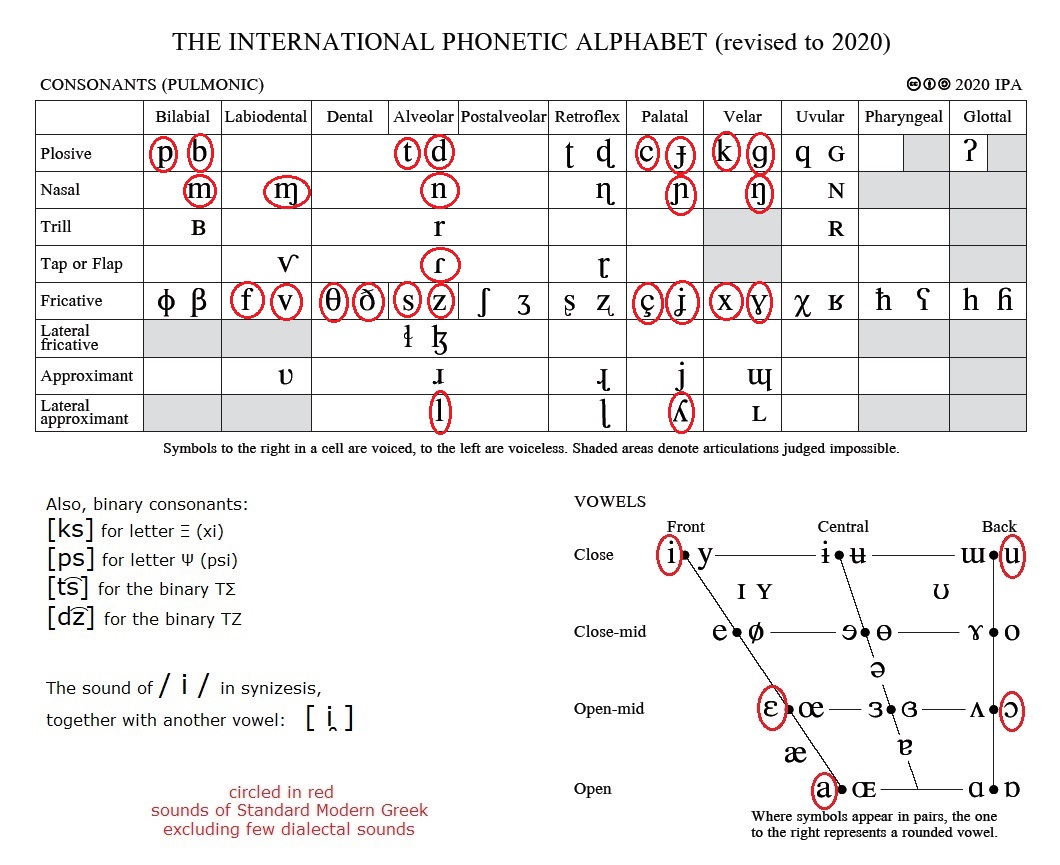PHONETICS for MODERN GREEK concise
⇐ ⇑ ⇒
I.P.A. = International Phonetic Alphabet
- The 5 vowels [ a e i o u ] ♪ are always simple. No variations e.g. [ æ ə y ] etc. as in other languages.
- The sounds [b d ɡ ♪ p v f ♪ t ð θ ♪ k ɣ x ♪ ʝ ♪ l m n ♪ ɾ s z ♪] are quite simple.
- Note the difference between:
- [ d ] and [ ð ] ♪
- [ ʝ ] and [ ɣ ] ♪
- There is no [ ʃ ] ♪ sound in Standard Modern Greek.
- The double sounds [ks] [ps] ♪ [t͡s] [d͡z] ♪ ] are uttered in a fast, linked way.
-
- There are a few variations for some consonants. If you do not pronounced them while speaking greek, no problem. Everyone will still understand you.
- [ ʝ ] as in yes and [ ɣ ] ♪
- [ n ] as in no and [ ɲ ] as in new ♪
- [ l ] as in low and [ ʎ ] as in italian tagliatelle ♪
- [ x ] as in scottish Lokh and [ ç ] as in humour ♪
- [ k ] as in cool and [ c ] as in cute ♪
- [ g ] as in go and [ ɟ ] as in gift ♪
- [ g ] as in big and [ ŋg ] as in bingo ♪
-
- A stress accent is written before the stressed syllable. Small words are usually not stressed.
- mod.gre: [efxari'sto] ♪ = eng:thanks (literally: I thank)
- simplified easy-typing at webtopos:
r for ɾ voiced alveolar flap
γ Greek gamma for ɣ
δ Greek delta for ð
j for ʝ

⇐ ⇑ ⇒
katerina sarri, athens, october 2007 - corrections, July 2024
